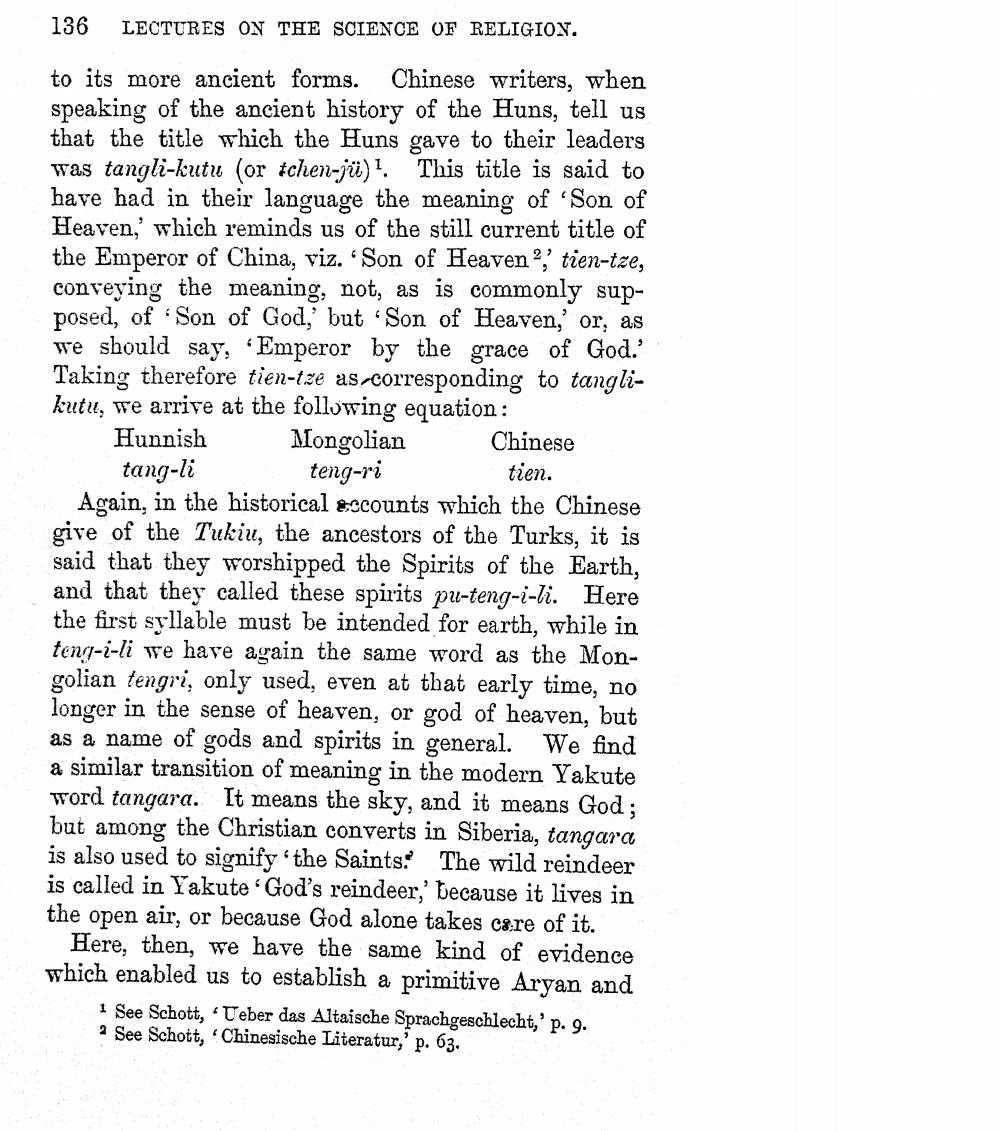________________
136 LECTURES ON THE SCIENCE OF RELIGION. to its more ancient forms. Chinese writers, when speaking of the ancient history of the Huns, tell us that the title which the Huns gave to their leaders was tangli-kutu (or tchen-jü)? This title is said to have had in their language the meaning of 'Son of Heaven,' which reminds us of the still current title of the Emperor of China, viz. “Son of Heaven?, tien-tze, conveying the meaning, not, as is commonly supposed, of Son of God, but “Son of Heaven, or, as we should say, "Emperor by the grace of God.' Taking therefore tien-tze as corresponding to tanglikutu, we arrive at the following equation:
Hunnish Mongolian Chinese tang-li teng-ri
tien. Again, in the historical accounts which the Chinese give of the Tukiu, the ancestors of the Turks, it is said that they worshipped the Spirits of the Earth, and that they called these spirits pu-teng-i-li. Here the first syllable must be intended for earth, while in teng-i-li we have again the same word as the Mongolian tengri, only used, even at that early time, no longer in the sense of heaven, or god of heaven, but as a name of gods and spirits in general. We find a similar transition of meaning in the modern Yakute word tangara. It means the sky, and it means God; but among the Christian converts in Siberia, tangara is also used to signify the Saints. The wild reindeer is called in Yakute 'God's reindeer,' because it lives in the open air, or because God alone takes care of it.
Here, then, we have the same kind of evidence which enabled us to establish a primitive Aryan and
1 See Schott, -Ueber das Altaische Sprachgeschlecht,' p. 9. . See Schott, Chinesische Literatur,' p. 63.




